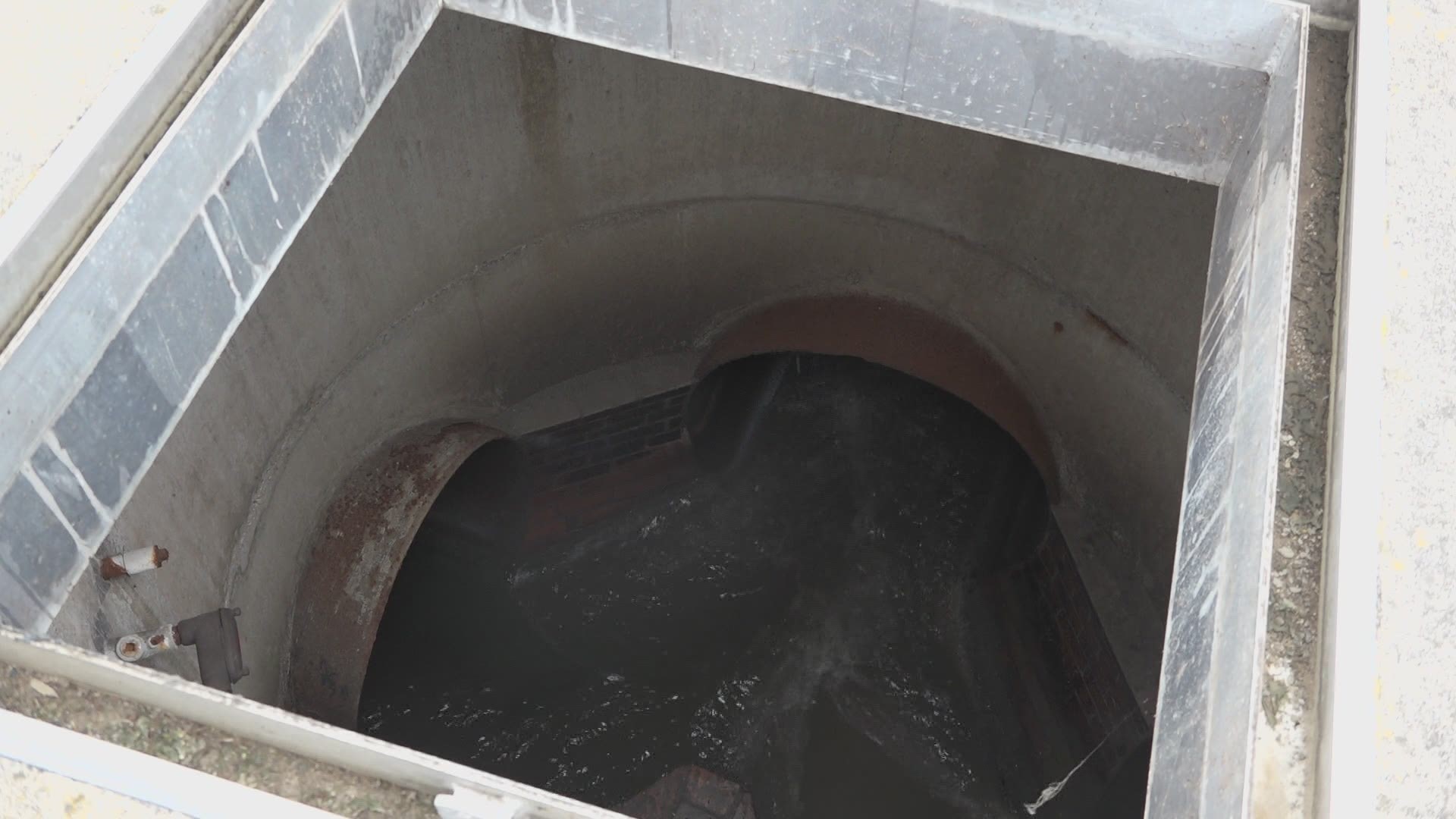HARTFORD, Conn. — New data is showing an uptick in the concentration of the new coronavirus in communities across the state, and that research is being done in a pretty interesting way. It's part of the Connecticut COVID-19 Wastewater Surveillance Program.
The program monitors the daily concentration of the new coronavirus RNA at wastewater treatment facilities across the state of Connecticut.
The data can be used to track COVID-19 outbreaks in communities.
"When a person is infected with the coronavirus that causes COVID-19, that infection often can spread to the gut. That means when they use the toilet and stool comes out, their stool will be infected with that virus, so that means that it's going to show up at the wastewater treatment plant, said Jordan Peccia, the program's lead researcher at Yale University's Environmental Engineering Program. "The more people infected, the more we're going to see at a wastewater treatment plant."
At the wastewater treatment plant, the waste is mixed, and during the first phase of treatment, concentrated into what's called primary sludge.
The program measures the concentration of the new coronavirus RNA in that primary sewage sludge.
It covers nearly one million residents in the Stamford, Bridgeport, New Haven, Hartford, New London, and Norwich regions.
The program is sponsored by the State of Connecticut and is conducted by Jordan Peccia, Alessandro Zulli, and Annabelle Pan from Yale University’s Environmental Engineering Program in partnership with the Douglas Brackney at the Connecticut Agricultural Experimental Station, and the above six municipalities.
The data shows the number of copies of the coronavirus per milliliter of sludge, and the graph shows numbers have been spiking.
"I would say at the other sites, especially Stamford, Bridgeport's a little hard to tell right now, we see an increase. I'm not ready to say, 'Yeah watch out, an outbreak is here.' Obviously, it's probably coming but there are gradations," said Peccia.
Researchers said the information from this program can be used by local and state officials to implement public health measures.
"Testing data isn't always perfect and especially when there's an outbreak the testing system gets strapped, it gets a little bit slower and sometimes we're not able to test everyone we want to test. The wastewater doesn't see any of that. If a person is sick and infected, it's going to show up in the wastewater," said Peccia.

